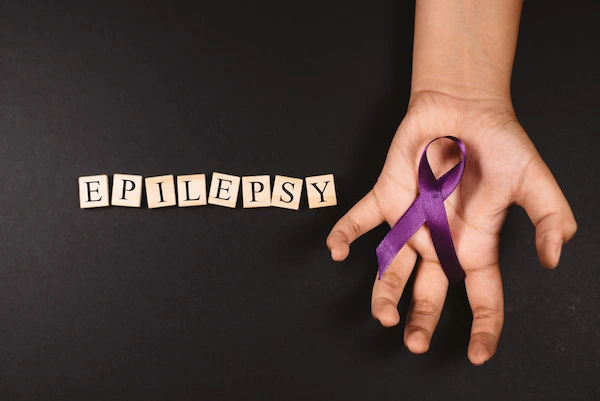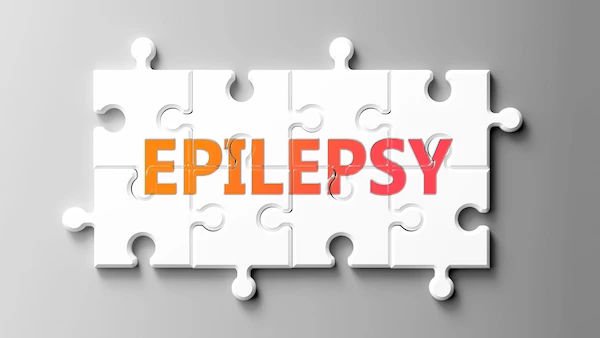Epilepsy Overview: Symptoms, Types, Risks, Treatment
Epilepsy is a brain disorder that causes recurrent seizures, ranging from mild staring spells to severe convulsions. Learn about its symptoms, types, causes, risk factors, diagnosis, and treatment options to manage the condition effectively.

Written by Dr. Shaik Abdul Kalam
Reviewed by Dr. Rohinipriyanka Pondugula MBBS
Last updated on 13th Jan, 2026

Epilepsy is a neurological disorder that affects millions of people worldwide. If you or a loved one has been diagnosed with epilepsy, it’s natural to have questions and concerns. This article aims to provide clear, compassionate, and helpful information about epilepsy—its symptoms, types, risks, and treatment options—so you can better understand and manage the condition.
What is Epilepsy?
Epilepsy is a chronic disorder of the brain that causes repeated seizures. Seizures occur due to sudden, abnormal electrical activity in the brain, leading to temporary changes in behaviour, movement, sensation, or awareness.
While a single seizure doesn’t always mean epilepsy, a diagnosis is usually made if a person has two or more unprovoked seizures (not caused by fever, injury, or other temporary conditions).
Common Symptoms of Epilepsy
Seizures can vary widely from person to person. Some common symptoms include:
- Tonic-clonic seizures (previously called grand mal seizures):
- Loss of consciousness
- Stiffening of muscles (tonic phase)
- Jerking movements (clonic phase)
- Sometimes, biting the tongue or loss of bladder control
Absence seizures (previously called petit mal seizures):
- Brief staring spells (common in children)
- Slight twitching or blinking
- Sudden pause in activity
Focal seizures (partial seizures):
- Affecting only one part of the brain
- Symptoms depend on the affected area (e.g., sudden emotions, involuntary movements, or sensory changes like strange smells or tastes)
Atonic seizures (drop attacks):
- Sudden loss of muscle control, leading to falls
- Not all seizures are dramatic—some may be subtle, like brief confusion or staring spells. If you notice unusual symptoms, consult a doctor.
Types of Epilepsy
Epilepsy is classified based on seizure type and cause:
1. Generalised Epilepsy – Seizures affect both sides of the brain.
Includes tonic-clonic, absence, and myoclonic seizures.
2. Focal Epilepsy – Seizures start in one part of the brain.
May spread or remain localised.
3. Combined Generalised & Focal Epilepsy – Some people experience both types.
4. Unknown Origin – When the cause isn’t clear.
What Causes Epilepsy?
In many cases, the exact cause is unknown. However, some common tumours include:
- Genetic factors (family history of epilepsy)
- Brain injuries (head trauma, stroke, infections like meningitis)
- Developmental disorders (autism, neurofibromatosis)
- Prenatal damage (lack of oxygen during birth, maternal infections)
- Brain tumors or cysts
- Infections (encephalitis, HIV)
Risk Factors
Certain factors may increase the risk of developing epilepsy:
- Age – More common in children and older adults.
- Family history – Genetics play a role in some cases.
- Head injuries – Severe trauma can trigger seizures later.
- Stroke or vascular diseases – Reduced blood flow to the brain.
- Infections – Brain infections increase risk.
- Alcohol or drug abuse – can lead to seizures.
How Epilepsy Affects Daily Life
Living with epilepsy can be challenging, but with proper management, most people lead full, active lives. Some common concerns include:
- Safety – Seizures can lead to falls or accidents.
- Driving restrictions – Laws vary, but seizures may limit driving privileges.
- Work & school – Adjustments may be needed to prevent triggers.
- Mental health – Anxiety and depression are common, due to unpredictability.
Diagnosis & Tests
If seizures are suspected, doctors may recommend:
1. Medical history & physical exam – To check for underlying causes.
2. Electroencephalogram (EEG) – Measures brain electrical activity.
3. MRI or CT scans – Looks for structural brain abnormalities.
4. Blood tests – Rule out infections or metabolic disorders.
Get Your Health Assessed
Treatment Options
Epilepsy can often be managed effectively with:
1. Medications (Anti-seizure drugs)
- Most people control seizures with medication.
- Finding the right drug and dosage may take time.
- Never stop medication without consulting a doctor.
2. Surgery
Consider if medications fail and seizures originate from a specific brain area.
3. Vagus Nerve Stimulation (VNS)
A device implanted under the skin helps reduce seizures.
4. Ketogenic Diet
A high-fat, low-carb diet may help some children with epilepsy.
5. Lifestyle Adjustments
Sleep well – Lack of sleep can trigger seizures.
- Manage stress – Relaxation techniques like yoga or meditation help.
- Avoid triggers – Flashing lights (in photosensitive epilepsy), alcohol, or missing meals.
- When to Seek Emergency Help
Call for medical help if:
- A seizure lasts more than 5 minutes.
- A second seizure occurs immediately.
- The person is injured, pregnant, or has diabetes.
- Breathing difficulty occurs after the seizure.
- Living Well with Epilepsy
With proper care, epilepsy can be managed effectively. Here are some tips:
- Take medications as prescribed.
- Keep a seizure diary (note triggers, frequency).
- Wear a medical alert bracelet.
- Educate family & friends on seizure first aid.
- Stay active safely – Avoid swimming alone or extreme sports without supervision.
Final Thoughts
Epilepsy is a manageable condition with the right treatment and support. If you suspect seizures, consult a neurologist for proper diagnosis and care.
Need Help?
If you or a loved one is experiencing seizures, Apollo 24|7 offers expert neurology consultations and diagnostic tests. Book an appointment today for personalised care.
Consult a General Practitioner for Personalised Advice
Consult a General Practitioner for Personalised Advice

Dr. Rajib Ghose
General Physician/ Internal Medicine Specialist
25 Years • MBBS
East Midnapore
VIVEKANANDA SEBA SADAN, East Midnapore

Dr. Jacqueline M. Kuruvilla
General Practitioner
8 Years • MBBS
Bengaluru
Apollo Clinic, Sarjapur Road, Bengaluru

Dr. Vivek D
General Physician
4 Years • MBBS
Bengaluru
PRESTIGE SHANTHINIKETAN - SOCIETY CLINIC, Bengaluru

Dr. Suvayan Sadhu
General Practitioner
2 Years • MBBS
Kolkata
GRD POLYCLINIC, Kolkata

Dr. Ashita Kuruvilla
General Physician/ Internal Medicine Specialist
7 Years • MBBS
East Midnapore
VIVEKANANDA SEBA SADAN, East Midnapore




